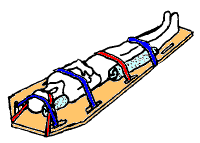
Suspected adverse reactions to performance enhancing dietary supplements: Spontaneous reports from the Italian phytovigilance system
Sign Up to like & getrecommendations! Published in 2021 at "Phytotherapy Research"
DOI: 10.1002/ptr.7040
Abstract: Herbal tonic and adaptogens are often used to improve overall well‐being. However, few clinical evidence supports their use and their safety is not known before marketing. In this context, the aim of our study was… read more here.
Keywords: dietary supplements; adverse reactions; spontaneous reports; performance enhancing ... See more keywords

A descriptive study of commercial herbal dietary supplements used for dyslipidemia—Sales data and suspected adverse reactions
Sign Up to like & getrecommendations! Published in 2022 at "Phytotherapy Research"
DOI: 10.1002/ptr.7473
Abstract: Herbal dietary supplements (HDS) used for dyslipidemia represent a category of concern in Italy for suspected adverse reactions (ARs). However, we cannot estimate their safety, as we do not know their commercial profile. Sales data… read more here.
Keywords: herbal dietary; adverse reactions; used dyslipidemia; suspected adverse ... See more keywords

Are unexplained adverse health events following HPV vaccination associated with infectious mononucleosis? - A Danish nationwide matched case-control study.
Sign Up to like & getrecommendations! Published in 2020 at "Vaccine"
DOI: 10.1016/j.vaccine.2020.06.057
Abstract: BACKGROUND In Denmark, the acceptance of the HPV vaccination program has been threatened by reports of suspected adverse events. Epstein Barr Virus (EBV) infection is associated with symptoms of long-lasting tiredness and may be misinterpreted… read more here.
Keywords: infection; study; adverse events; hpv vaccination ... See more keywords

Suspected adverse drug reaction reports with oral anticoagulants in Portugal: a pharmacovigilance study
Sign Up to like & getrecommendations! Published in 2018 at "Expert Opinion on Drug Safety"
DOI: 10.1080/14740338.2018.1439474
Abstract: ABSTRACT Objective: In this pharmacovigilance study, we aimed to determine the incidence of spontaneously reported suspected adverse drug reactions (ADRs) related to oral anticoagulants: non-vitamin K antagonist oral anticoagulants (NOACs; apixaban, dabigatran, edoxaban, rivaroxaban) and… read more here.
Keywords: drug; pharmacovigilance study; oral anticoagulants; suspected adverse ... See more keywords

Improving the spontaneous reporting of suspected adverse drug reactions; an overview of systematic reviews.
Sign Up to like & getrecommendations! Published in 2023 at "British journal of clinical pharmacology"
DOI: 10.1111/bcp.15791
Abstract: AIM To conduct an overview of systematic reviews examining interventions to stimulate spontaneous reporting of suspected adverse drug reactions (ADRs) by HCPs and/or patients/carers METHODS: Systematic reviews published since January 1st , 2000, were identified… read more here.
Keywords: systematic reviews; reporting suspected; suspected adverse; reporting ... See more keywords

P46 Spontaneous reporting of suspected adverse drug reactions by children and young people: past, present and future
Sign Up to like & getrecommendations! Published in 2019 at "Archives of Disease in Childhood"
DOI: 10.1136/archdischild-2019-esdppp.84
Abstract: Background UK patients of all ages can contribute to the Medicines and Healthcare Regulatory Agency (MHRA) Yellow Card scheme (YCS), reporting suspected adverse drug reactions (ADRs). Children’s and young people’s (CYPs) contribution to, and awareness… read more here.
Keywords: drug reactions; drug; reporting suspected; adverse drug ... See more keywords

Information for children and young people about reporting suspected adverse drug reactions
Sign Up to like & getrecommendations! Published in 2022 at "Archives of Disease in Childhood"
DOI: 10.1136/archdischild-2021-323400
Abstract: Background When children and young people (CYP) report their own suspected adverse drug reactions (ADRs), different patterns of drugs and symptoms are noted. A new guide to reporting suspected ADRs using the Medicines and Healthcare… read more here.
Keywords: young people; guide; suspected adverse; report ... See more keywords

Suspected adverse events, 2015
Sign Up to like & getrecommendations! Published in 2017 at "Veterinary Record"
DOI: 10.1136/vr.j2206
Abstract: The following article has been produced by the pharmacovigilance unit at the Veterinary Medicines Directorate (VMD) to provide a summary of some of the results from its surveillance work carried out in 2015 Decrease in… read more here.
Keywords: events 2015; suspected adverse; adverse events;

Reporting suspected adverse reactions to new commercialized medicines in real world.
Sign Up to like & getrecommendations! Published in 2018 at "Multiple sclerosis"
DOI: 10.1177/1352458518754999
Abstract: Alemtuzumab is a humanized monoclonal antibody that targets CD52, an antigen expressed on lymphocytes, monocytes, some dendritic cell populations, natural killer cells and other leukocytes. Its exact mechanism of action in patients with multiple sclerosis… read more here.
Keywords: aes; medicine; real world; treatment ... See more keywords

Suspected Adverse Drug Reactions Related to Breast Cancer Chemotherapy: Disproportionality Analysis of the Brazilian Spontaneous Reporting System
Sign Up to like & getrecommendations! Published in 2019 at "Frontiers in Pharmacology"
DOI: 10.3389/fphar.2019.00498
Abstract: Spontaneous reporting systems may generate a large volume of information in real world conditions with a relatively low cost. Disproportionality measures are useful to indicate and quantify unexpected safety issues associated with a given drug-event… read more here.
Keywords: disproportionality; drug reactions; analysis; drug ... See more keywords